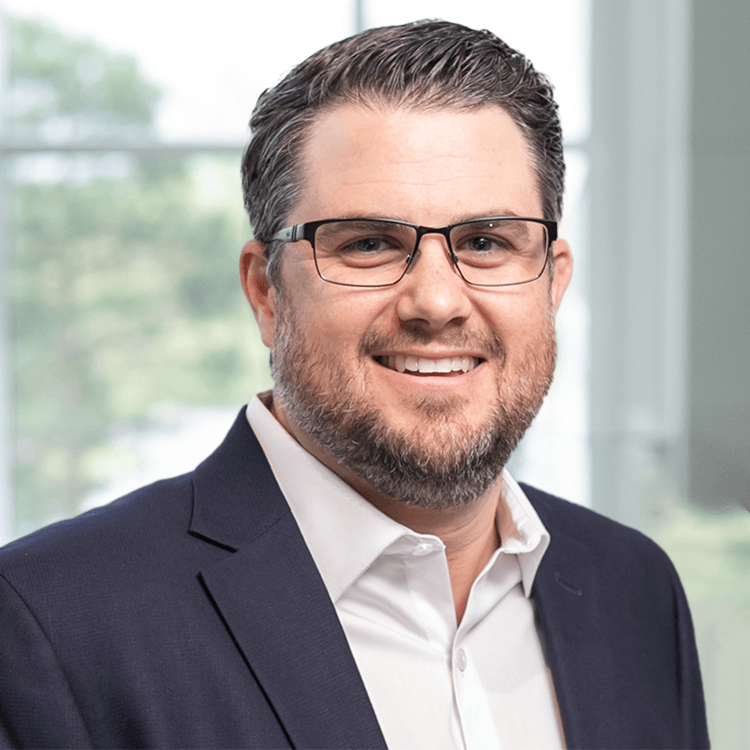
Podcast: Genesis Planning 101 for Young Professionals
By Mueller Financial Services, February 22, 2022
Join Brennan Hollenbeck, Accredited Investment Fiduciary®, Wealth Advisor, for an in-depth look into Genesis Planning, a modern, streamlined, and interactive 21st-century approach to financial planning for young professionals, new families, and even those simply looking for customized first-time advice. In this episode, we share why we started Genesis Planning, how it differs from your “average” financial planning, and define two retirement buzzwords among young professionals.
Listen Now:
For more information, please contact:

Brennan Hollenbeck, Accredited Investment Fiduciary®
Vice President / Wealth Advisor
bhollenbeck@muellersolutions.com
312.888.4638
EPISODE TRANSCRIPT:
[00:00:00] Emily: Hi everyone. You’re listening to Managing Your Wealth, Your Vision, Our Guidance the Mueller Financial Services, Inc., podcast. I’m Emily, and today I’m with Brennan Hollenbeck who will be sharing some insight about financial planning for young professionals, also known as Genesis Planning at Mueller Financial Services.
But before we get into the topic, let’s do some introductions.
Brennan is an Accredited Investment Fiduciary and Wealth Advisor who has over 10 years of experience providing wealth planning and financial advisory services to high net worth individuals, multi-generational families, executives, entrepreneurs, and their closely held businesses. He’s also helped develop Genesis Planning, a modern streamlined, and interactive 21st century approach to financial planning for young professionals, new families and even those simply looking for customized first time advice.
Brennan, thank you for joining the podcast today.
[00:01:04] Brennan: Thank you for having me.
[00:01:05] Emily: Of course. So what is Genesis Planning and what was the thought process behind it?
[00:01:11] Brennan: Yeah, so Genesis Planning came about originally because here at Mueller Financial Services, we’re a very financial planning focused firm. We love to work with individuals and help them kind of lay out the blueprint, I would say, for what is going to be their financial plan in the future.
Usually though, that is focused on retirement. And so most of the financial plans that we’re doing, they’re for people that are in their let’s say early to mid fifties, some are even in their sixties and they might only have 3, 4, 5 years to go until retirement, but we never really had anything that was developed or focused on the financial planning side geared specifically for younger generations. And when, I mean younger, I mean, this can be somebody as, as young, as right out of college or even somebody that’s on their second or third career move and they might be in their mid thirties, but Genesis Planning really stands for your first financial plan. That’s why we call it Genesis.
And it really covers six core areas of financial planning that really could apply to any generation. Doesn’t matter whether you are in your twenties or in your sixties. We found that those six core areas applied to all people, they just needed to kind of be tweaked and altered to meet the specific needs of that generation that we were working with.
And most of the clients that we currently work with today, you know, they would look at us and they would say, well, gosh, these were amazing tips that you gave us. You know, I’m so glad that I am on track for retirement and that, you know, I’m going to be able to do all the things I want to do. But if only I had known about this earlier in life.
And so we were hearing that over and over from our clients in their fifties and sixties, about just how they wish they had somebody that they could talk to about their financial planning aspects of their life, but do so at a younger age. And so that was really the thesis of Genesis Planning and how it came about.
[00:02:55] Emily: And what are those six core areas that you mentioned earlier?
[00:02:59] Brennan: Yeah. So there’s, there’s six core areas of financial planning that we go through. And every plan has to start somewhere, whether you are retiring or whether you are just out of college. Uh, for us, that all starts with something like cashflow and, and really debt management too, might be something that we take a look at.
So somebody in their late sixties, you know, they probably already paid off their house. They’ve paid off their student loans, you know, many, many years ago. They’re not so worried about debt management. Whereas someone right out of college, they might have significant student loans they have to worry about maybe they are thinking about buying their first home.
So for them, the cashflow and debt management area is, it looks a lot different than a retiree, but it really has to start with that. We have to know what are the ins and outs, and everybody’s plan is different. I’ve I’ve worked with people that come to me with a lot of debt. I’ve worked with people that come to me with none, so it can be any at all.
Uh, from there we really get into to the core of what I call the goal setting area of financial planning. And this is really the part where I tell clients to dream big. You know, some clients tell me, well, can I afford a $300,000 house? I really think I might only be able to do 200 or maybe they can afford a half a million.
It’s it’s all about what are you trying to achieve in, let’s say the short run in that one to two year timeframe? What are you trying to achieve in the kind of three to five year range? And then what is kind of your longer term goals? So we talk about those goals, we identify them, and then we put dollar amounts to them.
From there, we look at all the different things, uh, of what you are currently investing in. So whether you’ve got 401k’s or Roth IRAs, or just savings accounts, we’ve got to take a look at your overall investment picture. And so we analyze that. That’s that’s the third core area. From there, we’re definitely focusing on things like risk management.
So when we say risk management, you know, God forbid something would happen to, if I sit across the table from a husband and wife, what if one of them is not around tomorrow? You know, how would that impact the others plan? How does that impact their children’s lives? How do we protect against that risk? So that’s the fourth area.
So the last area, and it’s a really, really important one is what we call tax planning. And we here at Mueller Financial Services are, are separate, but were related to an accounting firm, PKF Mueller. And so we actually take tax planning very seriously here, and it can be a very big part of saving money and then distributing those assets to you in retirement in a tech savvy way.
And so we actually ask for your previous two years tax returns, we want to know, you know, what have you done in the past? And then, you know, we’re coming up with and formulating ideas for the future. And I always like to say that we have this kind of tax umbrella that kind of sits over our financial services firm head. Every decision that we make, all of our planning recommendations, we always have this tax aspect in the back of our mind. And it truly is what us makes, makes us different. It’s what makes all of our recommendations, hopefully, you know, tax efficient that we’re doing. So, you know, this question of how can we save money on taxes? I have yet to find someone who would rather give their money to the government than keep it for themselves.
So haven’t found anybody like that yet. Um, but, uh, that’s, that’s why we really do like to say that the tax planning is something that definitely needs to be considered. And is an umbrella over all of our recommendations.
[00:06:06] Emily: Great. And what does the timeline look like , to complete these six steps?
[00:06:11] Brennan: Yeah, so we can go from, you know, data gather all the way to presenting our final recommendations on a financial plan and, and really the, um, the steps that they’re going to need to carry those out.
I’ve done plans in as little as, let’s say three to four weeks for clients that are really motivated. Um, some clients take longer, they take longer either get us the data or something might be happening in their lives. Maybe they’re having their first child or their second or they’re in the process of a move.
Um, so they want to kind of wait and see, you know, how does this move or this new child impact my cashflow for instance. But, uh, we really don’t, uh, set a hard deadline on a client. We really want to work with whatever is the best timeframe for them. So, you know, quickly we can get it done in three, four weeks. Most plans take, I would say, you know, eight weeks or so.
[00:06:55] Emily: And tell me about the kind of technology that might be used during the discovery and analysis period.
[00:07:01] Brennan: Yeah. So this is one of the things that really makes Genesis Planning unique is the technology we use. You know, I like to say that, uh, this is not your father or mother’s financial plan, meaning at the end of it, we’re basically not going to hand you a big, you know, booklet and say, okay, here, here’s now your financial plan.
Everything is very digital. So everything is digital from um, what we say is like our data gather how we don’t need you to provide us paper statements or anything like that. It’s all done through a electronic share file, and we’ve got what we call “the vault” to upload all your documents. Um, the technology that you get to actually look at as a really, uh, innovative, uh, company called Money Guide Pro. It’s kind of our, um, our hub of our financial planning process.
And then when we’re done, you actually get a technology called Black Diamond and we use Black Diamond along the way also, but you get to take this technology with you and use it for as long as you would like, but it’s a really cool data aggregator. So those people might have you know, one account at JP Morgan and one account over here, and one account at their 401k or whatever it might be.
This is a place where they can aggregate all of those accounts into one easy single sign-on and, um, and have their financial plan and its results and its recommendations all alongside of it. So we use a lot of technology through this process. I’ve done these plans with people in different states. I did one with someone even in Hawaii, and we’re sitting here in Chicago, so it can be completely paperless and completely done over zoom or Microsoft Teams or whatever the system is that you’d like to use.
[00:08:31] Emily: Switching gears a little bit. I’ve heard two buzzwords lately, that relate to Genesis Planning.
The first one is FIRE. And the second one is HENRY. Can you explain those two terms a little bit?
[00:08:42] Brennan: Absolutely. So FIRE stands for being financially independent, retiring early. And some people might say, well, you know, what does that mean to retire early? I plan on retiring at around 60. To me, that’s early, cause my father and mother retired at 65. The FIRE movement is really about being financially independent as early as you would like it to be. So I actually worked with a couple who are in their late thirties on track to actually retire in their mid forties. They have done an incredible job of, of saving and investing and doing all the proper things.
Uh, so they want to retire in their mid forties. I would say that’s pretty early. Um, some people though, you know, being financially independent and quote on quote retiring early could just be okay right now, I’m only on track to retire at 65. I’d really love to know Brennan, what do I have to do? To retire at 58, you know, is there certain steps I can take to shave off 7, 8, 9 years?
And we can certainly help people with that. That is something that Genesis plan planning can do. Um, the second, uh, Henry stands for a high earner that is not rich yet. So that’s what a Henry is. I say a lot of Henrys are usually in their late twenties, early thirties, mid thirties. Usually it’s those people who they are, they’re making a really good amount of money.
Maybe they’re making six figures or, you know, between them and their significant other they’re making, you know, three, 400,000 even potentially. So they’re that really high earning. Well, we wouldn’t classify them as rich. Now anybody can be rich in a, in a different definition, but basically they’re, they’re earning a lot of money.
They can’t figure out where it’s all going. They haven’t amassed the assets, you know, yet to be what would be considered, maybe wealthy. So they’re in that, that that’s a perfect category where we can really help is how are you, you know, making all this money and it’s not going in the proper places to kind of develop that wealth that is eventually going to help you, you know, retire in the future.
[00:10:32] Emily: One of my last questions then is what is the next steps or action steps for a young professional who wants to get started on their own Genesis plan?
[00:10:39] Brennan: Yeah, so the, you know, the steps are really just, we have many different ways that you can reach out to us.
You can find me on, on LinkedIn or on our website. Um, but anyone that wants to take the initial steps to starting their own Genesis Plan. It starts with a conversation with us. So, um, you know, you don’t have to immediately sign up and get going. We want to have an introductory call with you. We want to explain the process in detail, find out a little bit about the goals that you’re trying to achieve and make sure that it’s something that we can do for you.
Um, so it all starts with, uh, with, uh, no obligation. We won’t bill you for it, anything like that? Um, just conversation around what you’re trying to accomplish, why you’re thinking a financial plan might help achieve those goals. And then it’s, it’s us really just looking at your situation and making sure that something like a Genesis Plan is going to get you there.
[00:11:29] Emily: Great. Well, thank you Brennan so much for your time and thanks for joining the podcast today.
[00:11:33] Brennan: Thank you so much for having me.
[00:11:35] Emily: And thank you for listening. If you’re interested to learn more about Genesis Planning or more about Mueller Financial Services in general, visit muellerfinancialsolutions.com, where you will find more information about the firm services and team members. You can also follow the firm on LinkedIn at Mueller Financial Services, Inc. For more firm updates, insights, and upcoming events.
PKF Mueller and Mueller Financial Services, Inc. are separate entities. Securities offered through LPL Financial. Member FINRA / SIPC. Investment advice offered through IHT Wealth Management, a registered investment advisor. IHT Wealth Management and Mueller Financial Services, Inc. are separate entities from LPL Financial. PKF Mueller and LPL Financial are separate unaffiliated entities.
The opinions voiced in this podcast are for general information only and are not intended to provide specific advice or recommendations for any individual. To determine which strategies or investments may be suitable for you, consult the appropriate qualified professional prior to making a decision.
Genesis PlanningRelated Insights

June 21, 2023
FIRE Movement
ShareIf the idea of retiring in your early 50s, 40s, 30s, or even late 20s appeals to you, you may …
Read More navigate_next
May 23, 2023
Secure 2.0: Advantages for Women
ShareJoin Susan Garbarino, Principal / Wealth Advisor, and Veronica Roshek, Wealth Advisor, as they discuss the advantages of the Secure …
Read More navigate_next